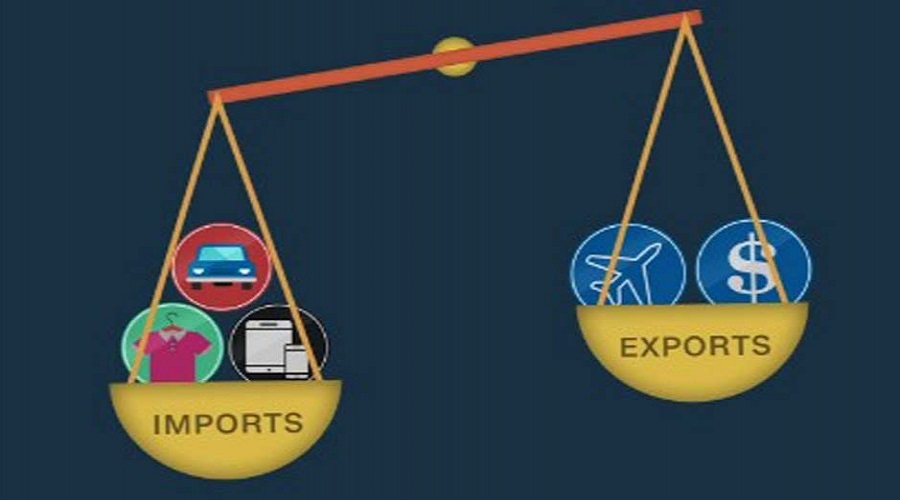Kathmandu: Nepal’s foreign trade statistics for the fiscal year 2023/24, released by the Department of Customs, reveal a notable improvement in the country’s trade deficit and overall trade performance.
During the last fiscal year, Nepal conducted foreign trade amounting to Rs 1,745 billion, resulting in a trade deficit of Rs 1,440 billion. This marks a decrease from the previous fiscal year’s deficit of Rs 1,768 billion. Imports totaled Rs 592 billion, down by 1.16 percent from the previous year’s figure of Rs 601 billion, while exports stood at Rs 152 billion, reflecting a decrease of 3.03 percent compared to Rs 157 billion in the previous fiscal year.
The overall foreign trade decreased by 1.33 percent, and the foreign trade deficit decreased by 0.96 percent year-on-year. The trade deficit ratio for the fiscal year was recorded at 10.45 percent.
India maintained its position as Nepal’s largest trading partner, with Nepal recording a trade deficit of Rs 893.17 billion. Imports from India amounted to Rs 996.68 billion, while exports were valued at Rs 103.17 billion. Nepal’s second-largest trade deficit was with China, amounting to Rs 296.18 billion, with imports from China totaling Rs 298.77 billion and exports at Rs 258.8 million.
In terms of trade surplus, Nepal saw the highest profit with Denmark, achieving a surplus of Rs 467.05 million. This was followed by Afghanistan, with a surplus of Rs 466 million.
The import structure was dominated by petroleum products, with diesel worth Rs 143.97 billion, petrol worth Rs 68.10 billion, and LPG (cooking gas) worth Rs 55.61 billion. Imports of iron products amounted to Rs 39.03 billion, while smartphones accounted for Rs 28.66 billion. Nepal also imported gold worth Rs 23.65 billion.
On the export front, Nepal’s key exports included carpets valued at Rs 10.57 billion, and cardamom worth Rs 7.93 billion, highlighting the country’s strengths in agricultural and manufactured goods.
These figures underscore Nepal’s ongoing efforts to balance its trade deficit through strategic initiatives and international trade partnerships.
